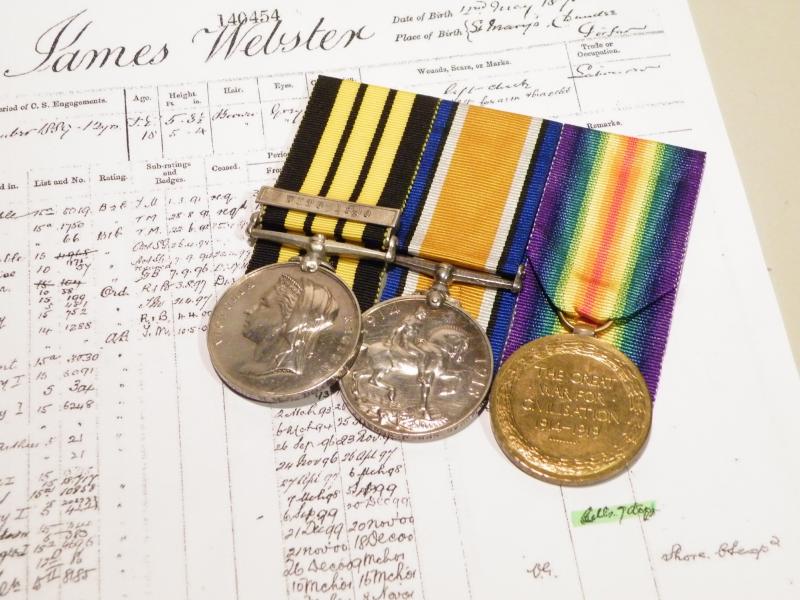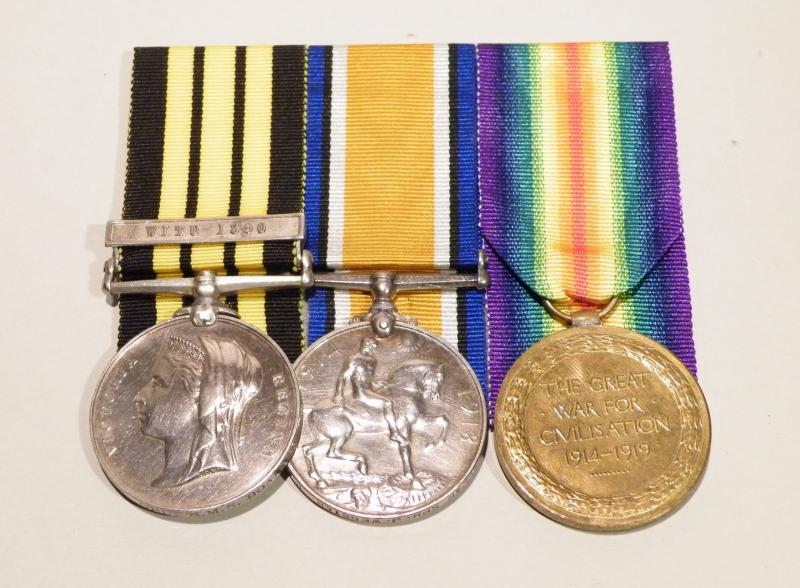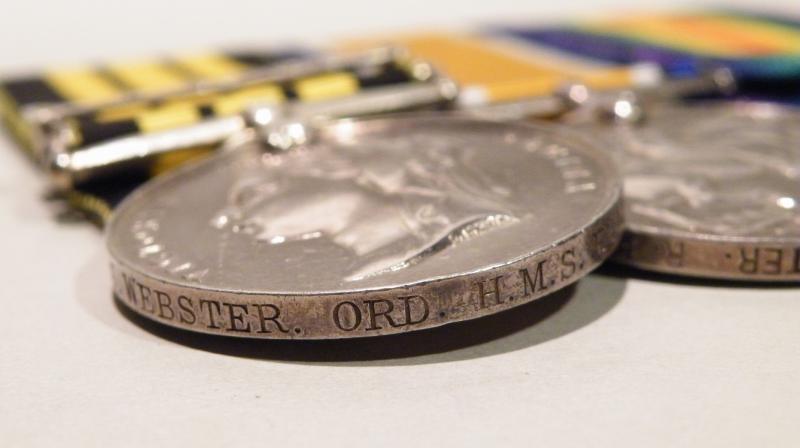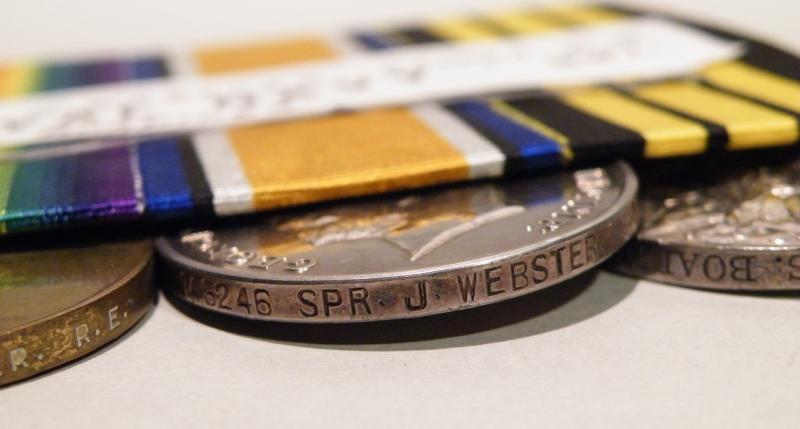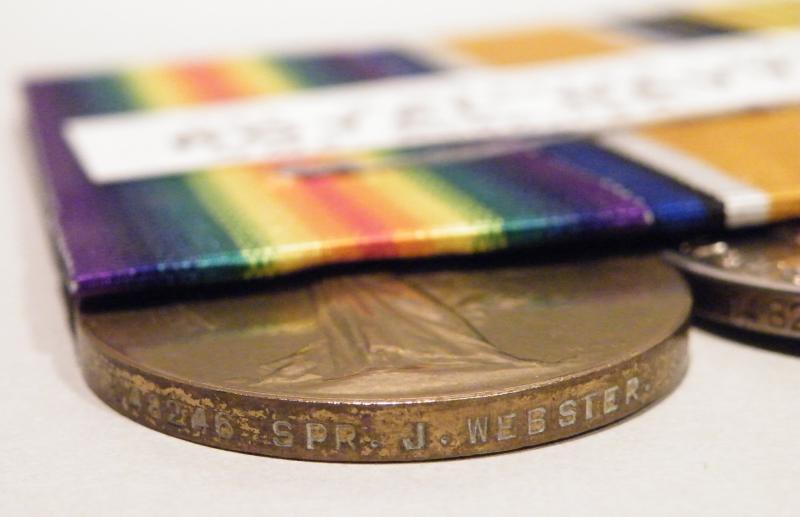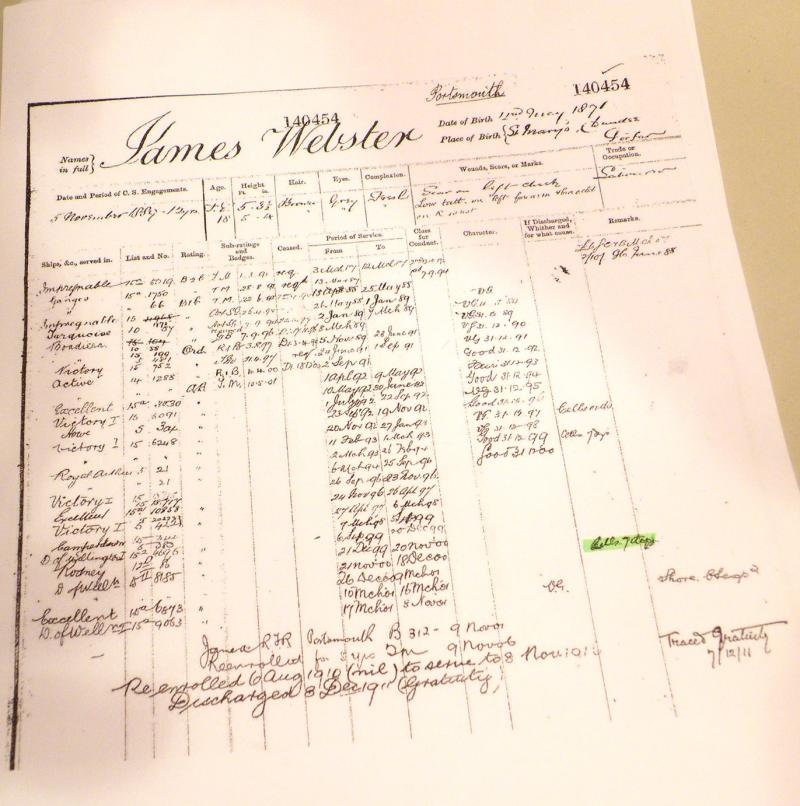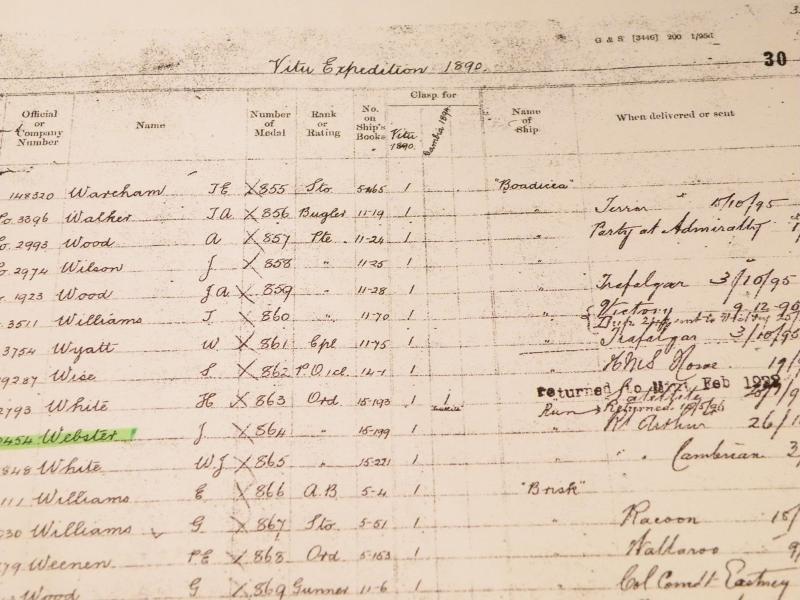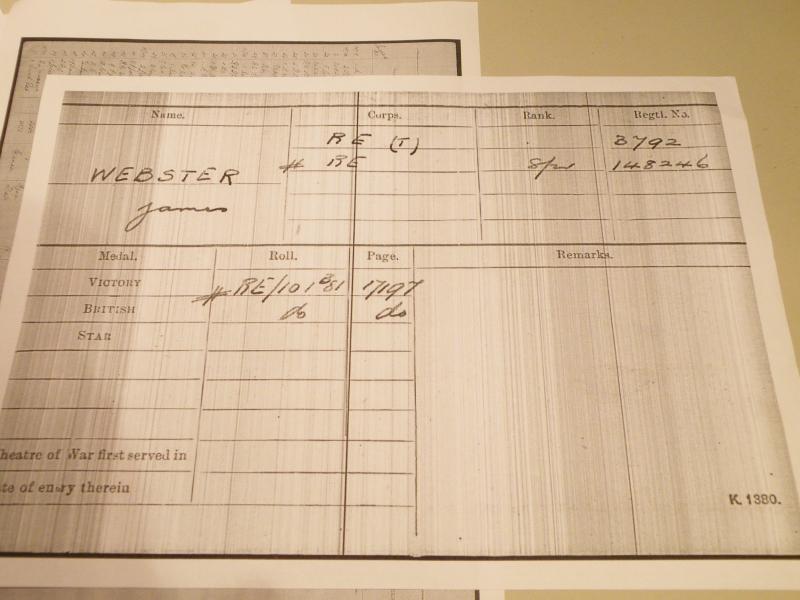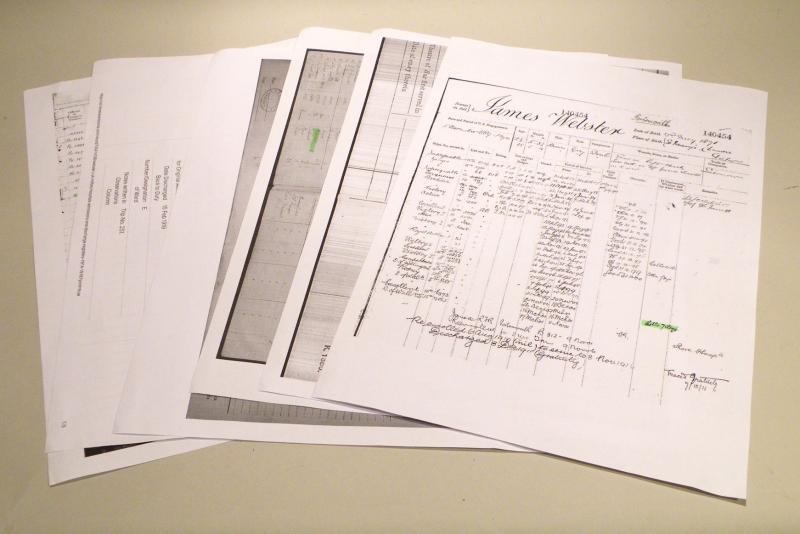Scarce Trio of Medals to Webster Royal Navy – Royal Engineers.
A scarce and interesting trio of medals comprising of the East and West Africa Medal with Witu 1890 clasp and correctly named to J Webster Ordinary Seaman, HMS Boadicea. British war and Victory medal correctly named to 148246 Sapper J Webster Royal Engineers.
James Webster was born in Dundee, Scotland on 2nd May 1871. Before he joined the Royal Navy in 1887 he was employed as a sailmaker. After a period of training at the shore establishments of HMS Impregnable and Ganges he took a position as acting signaller in 1889 aboard HMS Turquoise an Emerald-class composite screw corvette, launched in 1876. This ship captured ten slave ships between 1886 and 1890, releasing hundreds of slaves in the process. During one encounter, a slave ship rammed one of the ship's boats, but the crew still managed to sink the vessel and free 53 slaves. He transferred to HMS Boadicea later the same year and took part in the East and West Africa expedition under vice Admiral Sir Edmund Freemantle against the Sultan Fumo Bakari of Witu, a part of modern-day Kenya. Just 312 Witu clasps were awarded to Boadicea crew members. He served with the Royal Navy until 1901 where he was re-enrolled into the reserve, leaving with extensive training in the use of the telegraph.
James stayed in the reserve for some years and when war broke out in 1914, it must have seemed likely he would be recalled, but probably because of his age, now in his early 40’s he was enlisted into the Royal Engineers territorials’ part of the 52nd Lowland Division Signal Company. It is more than likely he joined them in Egypt, after the division has been evacuated from Gallipoli and subsequently moving to El Kantara and on 2nd March 1916 and took over No 3 Section of the Suez Canal defences. Staying and serving in the Gaza area in the Palestine campaign until March 1918, orders were received that the division would would then proceed to France. On 29th April the division moved to Aire and took over a sector of front line near Vimy on 6th May. It was withdrawn into reserve on 23rd July and eight days later once again went into the line northeast of Arras seeing some of the most savage fighting during the war at the battle of the Scarpe and the battle of the Drocourt-Queant Line. After the battles of the Hindenburg Line and the final advance in Artois, the division was on the front line north of the Mons canal and was engaged on clearing Herchies area when the armistice was declared on 11th November 1918. The demobilisation of the Division began in December and James was finally discharged on 15th February 1919.
All three medals are in excellent condition and come later court mounted on modern ribbons with various research including RN service records and medal roll, medal index card and medal roll etc.
Code: 30190
320.00 GBP

